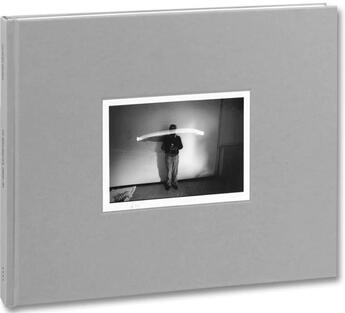-
Date de parution : 01/11/2023
-
Editeur :
Mack Books
-
EAN : 9781915743015
-
Série :
(-)
-
Support :
Papier
Résumé:
Di sguincio - meaning aslant, asquint, or seen from the corner of an eye - brings together more than a hundred black-and-white photographs made by Guido Guidi with small-format cameras between 1969 and 1981. These images record experimental early dialogues between Guidi and his camera: made... Voir plus
Di sguincio - meaning aslant, asquint, or seen from the corner of an eye - brings together more than a hundred black-and-white photographs made by Guido Guidi with small-format cameras between 1969 and 1981. These images record experimental early dialogues between Guidi and his camera: made without looking through the viewfinder and lit with a bright flash, they capture people, bodies, gestures, minor events, and fragments of space in moments of sudden and even abrasive encounter. While formally stark and even verging on the abstract, they document people and places close at hand - his family home in Cesena; friends with whom he shared an apartment in Treviso; colleagues at the Institute of Architecture at the University of Venice - forming affectionate personal works which explore the performative tension at the heart of images.
This book reproduces Guidi's own prints from the period, with their high contrast, unusual blurring and definition, and oblique, occasionally indiscernible handwritten annotations. Evoking the joys of invention and collaboration early in an artistic career, these fragments equally reflect the psychological, social, and political turmoil of Italy in an era of crisis and contestation of social values, metabolising the influences of neorealism and postmodernism in the search for new forms. The fundamental photographic theme of time - as it is recorded, experienced, and manipulated - is their elusive constant. With Di sguincio, we discover a set of anti-documents or anachronistic records - stamped, annotated, and sometimes artificially aged - which comment wryly on photography's claims to truth and reveal the foundations of a lifelong engagement with the possibilities of the medium.
Donner votre avis















